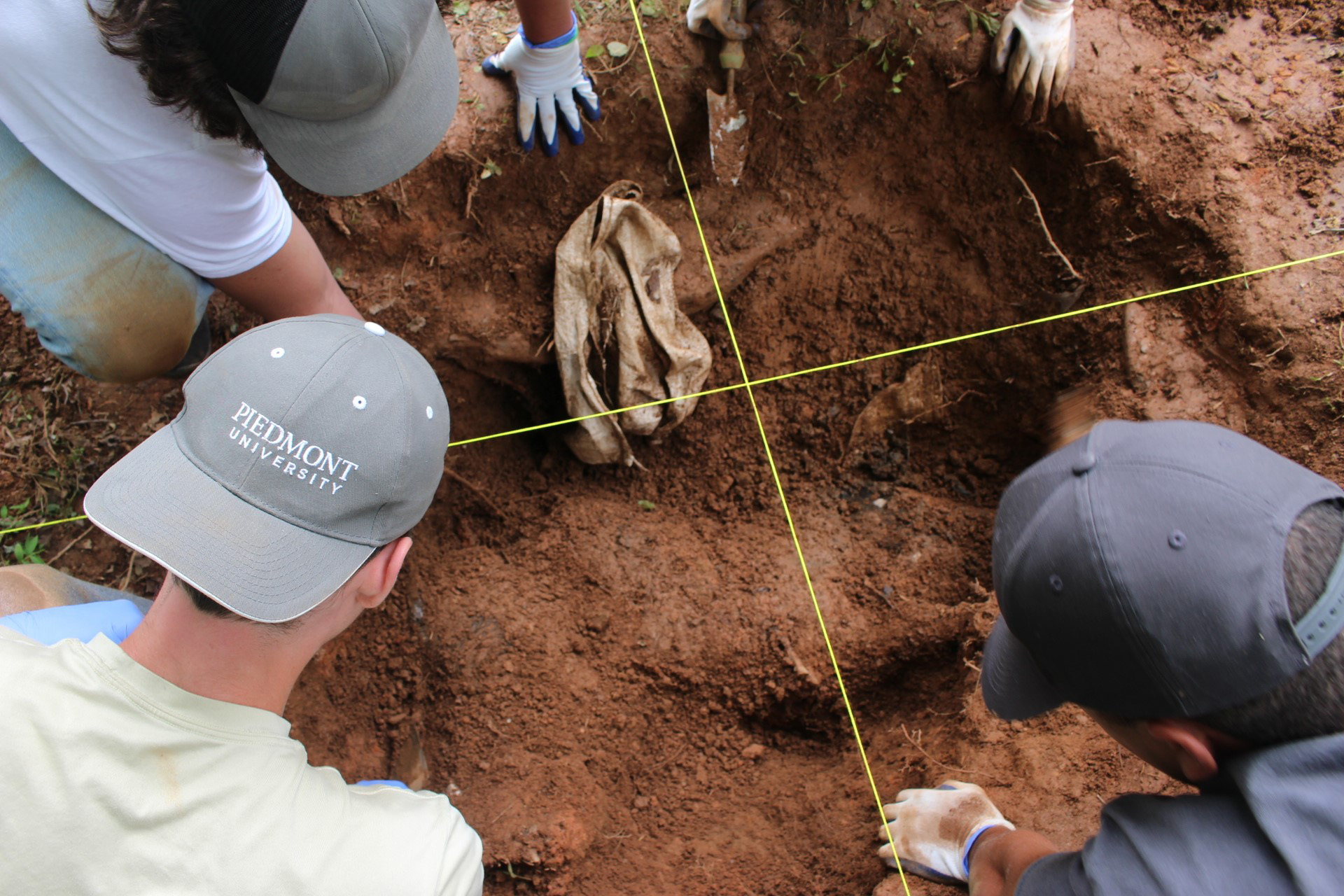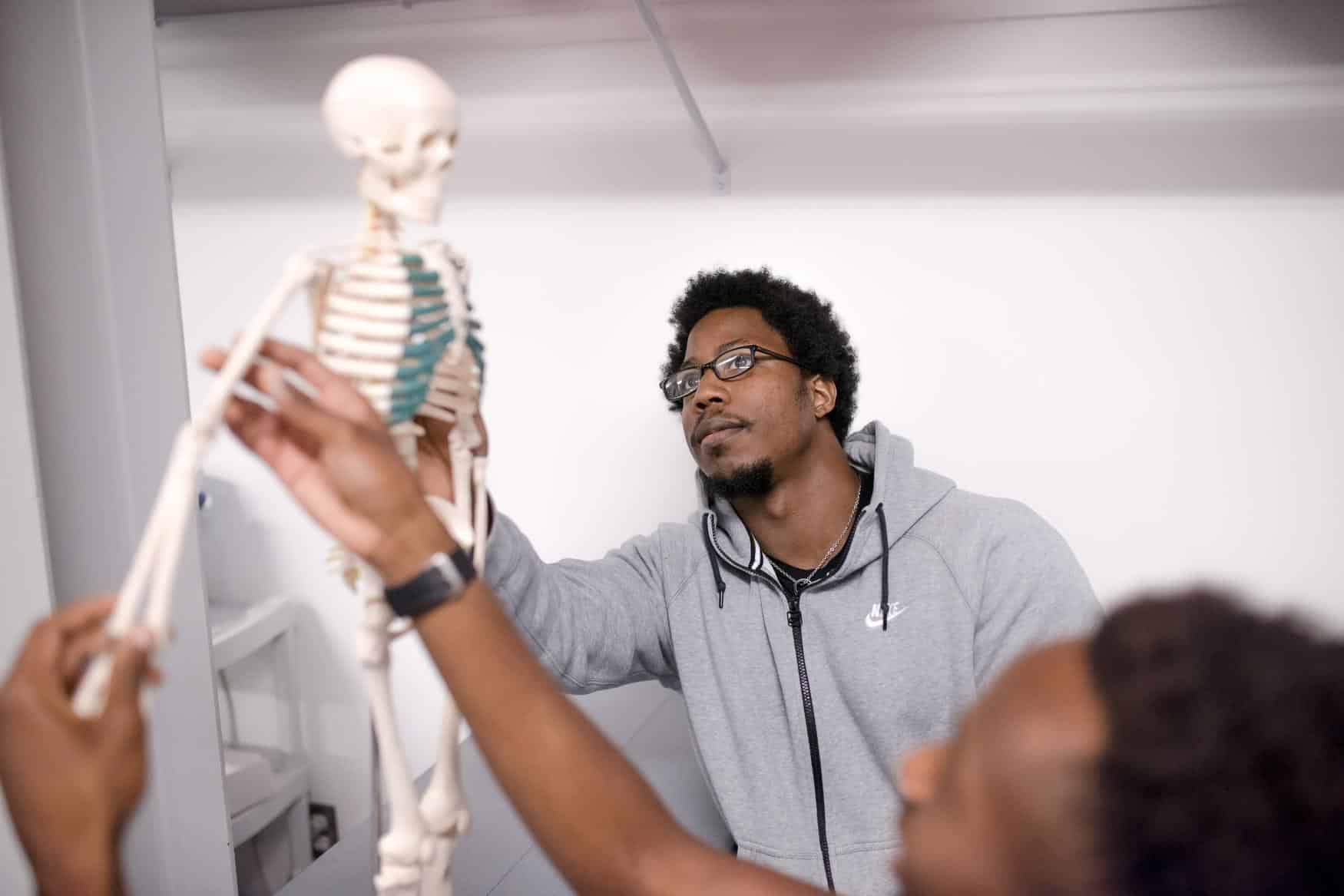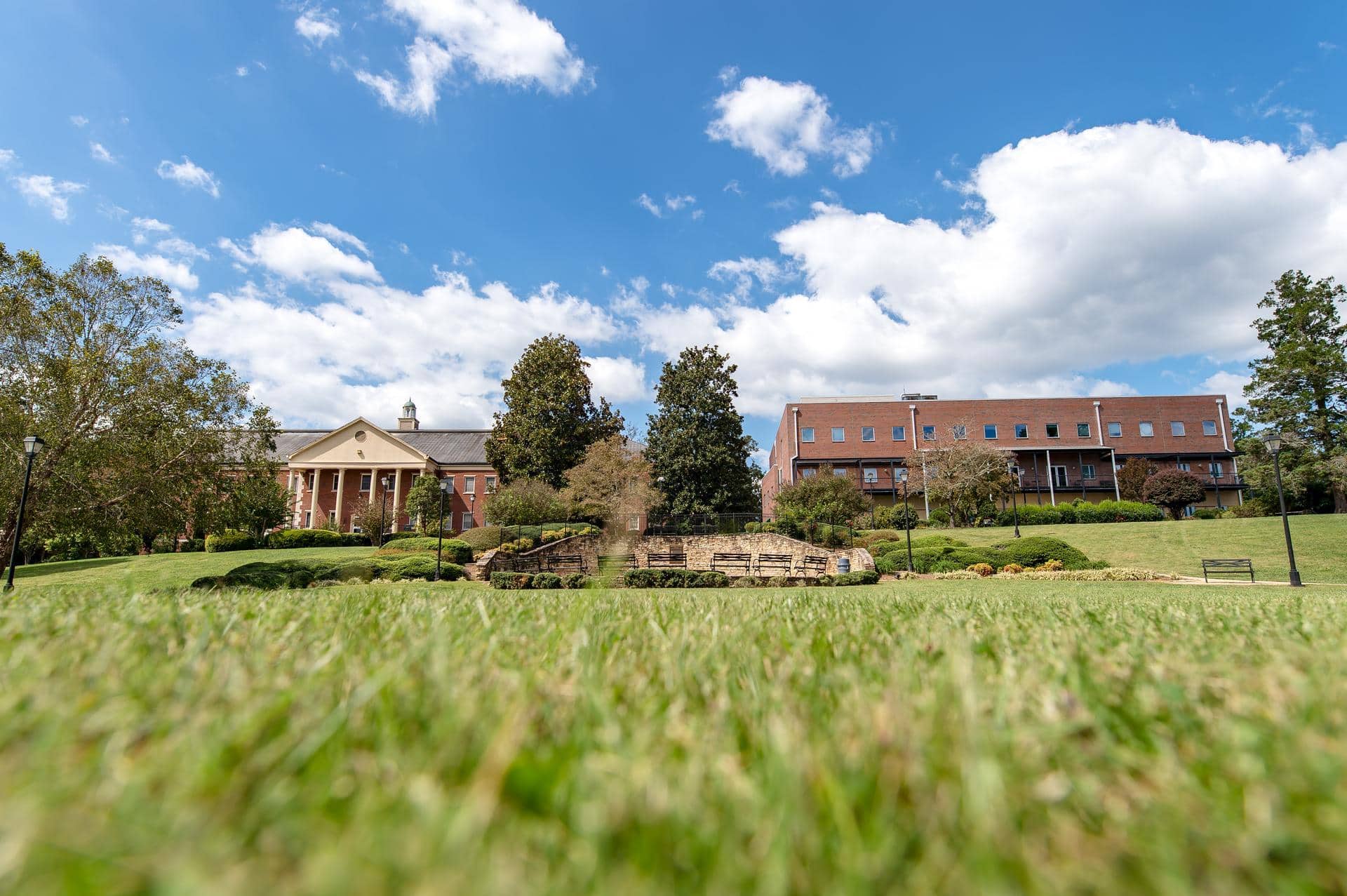Forensic Science, MS


Why Pursue a Forensic Science?
The Master of Science in Forensic Science equips students with the advanced skills and expertise needed to apply scientific principles in crime investigation and legal case resolution. Our program offers comprehensive training in forensic analysis, including DNA profiling, toxicology, and digital forensics, all taught by experienced professionals. With hands-on learning opportunities and real-world applications, graduates emerge prepared for dynamic careers in forensic laboratories, law enforcement agencies, and criminal justice organizations. Take the next step toward becoming a forensic science leader.

How a Piedmont Forensic Science Degree Helps You
Unlock the Science Behind Solving Crimes!
- Step into the world of forensic investigation – Learn how crime scene experts uncover the truth and contribute to the criminal justice system.
- Explore exciting career paths – From forensic analysis and toxicology to pathology and arson investigation, the opportunities are endless.
- Learn from the best – Our faculty are industry experts with deep connections, making our program one of the most sought-after in Georgia.
- Gain real-world experience – A required semester-long internship with a local or regional law enforcement agency gives you hands-on training to jumpstart your career.
Your future in forensic science starts here!
Career Opportunities
A Master of Science in Forensic Science opens up a wide range of career opportunities across various sectors in criminal justice, law enforcement, and scientific investigation.
With a growing demand for forensic professionals, especially in light of technological advances, job prospects in this field are expanding. Many forensic science professionals also work for government agencies, law enforcement, private labs, or within the criminal justice system.
A Master’s degree equips forensic scientists with advanced analytical techniques and critical thinking skills essential for solving complex cases. With this training, professionals are better prepared to handle diverse types of physical evidence in a lab setting.
This degree offers in-depth knowledge of crime scene protocols, evidence preservation, and reconstruction methods. Graduates gain the scientific foundation needed to interpret and process scenes with accuracy and precision.
By studying advanced toxicology and pharmacology, students learn to detect and analyze toxins in biological specimens. The program enhances their ability to interpret toxicological findings in a legal context.
While a medical degree is required for this role, a Master’s in Forensic Science provides valuable insights into postmortem examinations and death investigations. It also strengthens foundational knowledge in pathology-related forensic disciplines.
The program reinforces key skills in analyzing physical trauma and determining causes of death, complementing medical training. Exposure to forensic methodologies enhances their capability to support legal investigations.
A strong emphasis on molecular biology and genetics prepares students to analyze biological samples with precision. The degree also trains them in proper handling and interpretation of DNA evidence.
Though rooted in finance, forensic accounting benefits from forensic science training through enhanced investigative skills and legal evidence handling. The degree fosters a scientific approach to uncovering fraud and financial crimes.
Core courses in evidence analysis and legal procedures translate well to the digital realm. The scientific rigor gained helps professionals accurately recover, analyze, and present digital evidence in court.
An MSc provides crucial lab and field techniques for identifying human remains and interpreting skeletal trauma. It also lays the groundwork for collaboration with law enforcement on recovery operations.
Detailed instruction on crime scene documentation and evidence imaging sharpens the photographer’s role in investigations. The degree fosters a better understanding of how photography supports forensic analysis.
Although primarily a psychology field, forensic science coursework enhances understanding of criminal behavior patterns and legal procedures. It supports psychologists in effectively communicating with law enforcement and the courts.
The degree equips investigators with evidence-based methods to solve crimes and link suspects to scenes. Scientific training enhances their ability to interpret forensic reports and collaborate with lab personnel.
Advanced knowledge in lab procedures, quality assurance, and regulatory compliance is central to the program. With leadership-oriented coursework, the degree prepares managers to oversee complex forensic operations.
Graduates can leverage their expertise to educate future forensic professionals at colleges and universities. A Master’s credential often meets the qualification for teaching undergraduate-level forensic courses.
Consulting in forensic science requires credibility, which this degree helps establish through technical mastery and legal familiarity. Professionals use their training to advise attorneys, agencies, or private clients on forensic matters.
More About Forensic Science Degrees
Learn more about a Forensic Science degree and the variety of options available to you as a Piedmont student.
To earn the Master of Science in Forensic Science, students must complete 39 graduate credit hours while maintaining a minimum 3.0 GPA. At Piedmont University, graduate students are permitted to earn only one grade of “C” throughout their entire program.
As part of Piedmont’s College of Arts & Sciences, students will engage in a rigorous and comprehensive curriculum that blends scientific principles with real-world applications. Coursework covers key areas such as chemical forensics, forensic anthropology, and specialized forensic science techniques. Additionally, students will gain hands-on experience through a semester-long internship, typically with a local or regional law enforcement agency, preparing them for impactful careers in the field.
Find the Perfect Fit for Your Forensic Science Career
Piedmont University’s Master’s in Forensic Science program provides students with the specialized knowledge and hands-on experience employers demand. Our comprehensive coursework covers forensic sciences, chemistry, and biology, ensuring a well-rounded foundation in forensic investigation. You’ll develop expertise in key disciplines like photography, ballistics, DNA analysis, and bloodstain pattern analysis. Additionally, our unique specialty courses, such as forensic anthropology, lighting and photography, and imprint evidence, offer experiences not commonly found in other programs.
At Piedmont, forensic science students receive top-tier, real-world training to prepare them for successful careers. Our faculty’s strong professional connections across Georgia set us apart, providing students with exclusive opportunities for internships at leading agencies. These experiences not only build technical expertise but also create valuable industry relationships that help launch careers in forensic science.
The demand for forensic science technicians is on the rise as state and local governments expand their teams to manage increasing caseloads. Advances in technology continue to enhance the accuracy and impact of forensic evidence in criminal investigations and court proceedings. As the field evolves, highly trained forensic professionals will play an even more crucial role in delivering justice.
Piedmont University is also home to the Georgia Forensic Academy, where forensic science students can take POST credit courses at no cost.
Where do I start?
To begin your journey toward earning a Master of Science in Forensic Science degree at Piedmont University, you can start by applying today! Or, schedule a campus visit and meet with admissions and financial aid advisors, as well as faculty members in Forensic Science.



